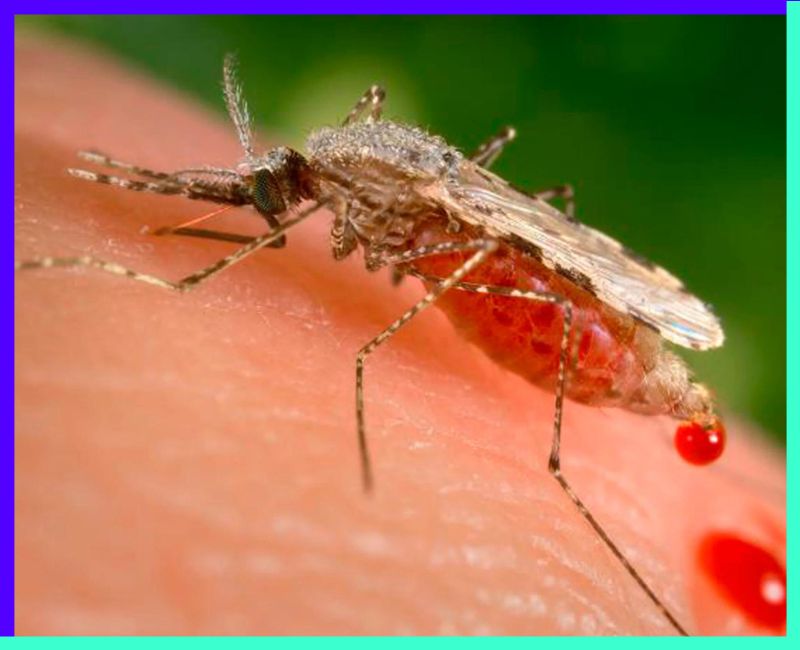Massachusetts towns are on high alert after a rare but deadly disease spread by mosquitoes has led to drastic public health measures. The virus, Eastern Equine Encephalitis (EEE), recently infected a resident, marking the first human case in the state since 2020. In response, some towns have closed parks and fields, urging residents to remain indoors during peak mosquito activity times.
Towns Close Parks as Eastern Equine Encephalitis Threatens Public Health
Plymouth, located about 40 miles southeast of Boston, has taken significant precautions after a horse in the town tested positive for EEE. Public outdoor recreation facilities in Plymouth are now closed from dusk until dawn each day. This decision comes as a proactive measure to prevent further spread of the virus, which has also been detected in mosquito populations across the state.
Critical Risk in Four Worcester-Area Towns
State health officials have placed a cluster of towns south of Worcester—Douglas, Oxford, Sutton, and Webster—on “critical risk” alert. This heightened concern follows the infection of a man from Oxford. Residents in these areas are being urged to finish outdoor activities by 6 p.m. until September 30, after which the recommended time will shift to 5 p.m. as the days shorten. These precautions are expected to remain in place until the first hard frost, which typically marks the end of the mosquito season.
Jennifer Callahan, the town manager of Oxford, has been in communication with the family of the infected man, who contracted the virus in mid-August. The family has emphasized the seriousness of EEE, highlighting the severe physical and emotional toll it takes, even on survivors. The man, who previously believed he was not susceptible to mosquito bites, had been bitten shortly before showing symptoms. He remains hospitalized, fighting the disease with immense courage.
A Dangerous Virus with No Cure
Eastern Equine Encephalitis is a rare but extremely serious disease. According to the U.S. Centers for Disease Control and Prevention (CDC), approximately 30% of people who become infected with EEE die from the disease. For those who survive, the aftermath is often life-altering, with many patients experiencing permanent disabilities. Symptoms of EEE include fever, headache, vomiting, diarrhea, and seizures, which can escalate rapidly.
There is currently no vaccine or treatment available for EEE, making prevention through mosquito control and personal protective measures the best defense. The virus is most commonly found in birds, and while humans and some other mammals can contract EEE, they do not spread the disease further.
The History of EEE in Massachusetts
Massachusetts has dealt with outbreaks of EEE in the past, most notably in 2019 and 2020. The 2019 outbreak resulted in 12 confirmed cases, six of which were fatal. The following year saw five more cases and another death. These outbreaks underscored the deadly potential of EEE and the importance of taking proactive measures to protect public health.
This year, the virus was first detected in a mosquito sample last month and has since been found in other mosquito populations across the state. The early detection has allowed state and local health officials to issue timely warnings and recommendations to minimize the risk of further infections.
How to Protect Yourself from EEE
With no cure for EEE, the best way to protect yourself and your loved ones is to follow the guidelines provided by health officials:
- Avoid Outdoor Activities During Peak Mosquito Hours: Mosquitoes are most active from dusk until dawn. Plan outdoor activities during daylight hours and avoid being outside during peak mosquito times.
- Use Mosquito Repellents: Apply EPA-approved mosquito repellents on exposed skin and clothing when outdoors. Products containing DEET, picaridin, or oil of lemon eucalyptus are effective.
- Wear Protective Clothing: When possible, wear long sleeves, long pants, and socks when outdoors to reduce skin exposure.
- Drain Standing Water: Mosquitoes breed in standing water. Regularly check and drain items around your home that collect water, such as birdbaths, flower pots, and gutters.
- Install Screens on Windows and Doors: Ensure that windows and doors are fitted with screens to keep mosquitoes out of your home.
- Support Local Mosquito Control Efforts: Participate in community mosquito control programs, which may include aerial spraying, larviciding, and other measures aimed at reducing mosquito populations.
Community Response and Public Awareness
The infected man’s family in Oxford has been vocal about the importance of public awareness and adherence to health recommendations. They want residents to understand that EEE is not just a mild illness but a life-threatening condition with potentially devastating consequences. Their message is clear: take the advice seriously, and protect yourself and others by following the recommended precautions.
As Massachusetts continues to navigate the challenges posed by EEE, the cooperation of communities and adherence to public health guidelines will be crucial in preventing further cases and protecting vulnerable populations.
Eastern Equine Encephalitis remains a rare but deadly threat in Massachusetts. With the first human case since 2020 now confirmed, state and local officials are urging vigilance. By following recommended precautions, residents can help reduce the risk of infection and protect themselves from this serious disease.
